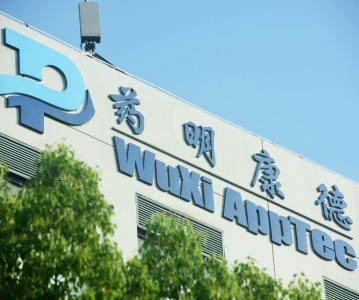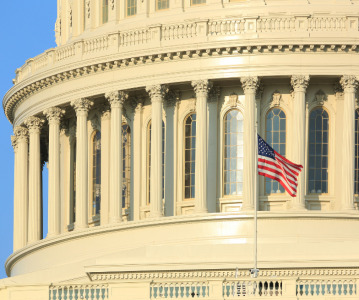Azerbaijan Rises as the New Player in the Healthcare Industry
The young but rapidly growing oil-rich Azerbaijan is presenting itself as a very attractive ground for global healthcare investors. Continuing government reforms coupled with the shortage of medical expertise, equipment and personnel are driving the transformation in the country’s healthcare market. The government has increased its healthcare budget more than 10 times in the past decade and built or remodeled more than 500 healthcare facilities so far.
With a growing population of in excess of 9 million, averaging 30 years of age, Azerbaijan’s future healthcare system will depend on an organized and well-established public health sector. Currently, Azerbaijan’s healthcare expenditure remains small when compared with its GDP. This means higher out of pocket payments (OOP) for patients; 62% of fees in 2007 were OOP. To alleviate this burden, the state is aiming for universal welfare, as well as other reforms aimed at improved healthcare infrastructure and financing freedom to hospitals and healthcare providers. More than $225 million was spent for nine state healthcare programmes and total healthcare spending was $612 million in 2010. In 2013 this figure is expected to rise to $760 million.
“Azerbaijan’s long-term plans focus on further developing its primary care and making coverage universal. The ongoing process provides a great opportunity for private investments,” observes Frost & Sullivan Healthcare Research Analyst Uldouz Berenjforoush. “Further, most of the modern technology and equipment used in the new and renovated hospitals are imported, which positions Azerbaijan as an attractive destination for healthcare vendors. The flourishing economy and growing healthcare system provide lucrative opportunities for the pharmaceutical sector, medical facilities and equipment, as well as personnel investments.”
In particular, there is a considerable market for pharmaceuticals, especially in delivering high-quality, low-cost products. Out of the 62% OOP paid by Azerbaijani patients, more than 70 % is spent on pharmaceuticals, 60% of which are imported. Turkey, Iran, India, Ukraine and Russia supply low-cost products, whereas medicines from US, France, Germany and other EU regions are much more expensive but have a better reputation.
As there is no domestic production, Azerbaijan is also a great market for medical device investments. Ultrasound scanners, electrocardiographs, X-ray equipment, laboratory analysers, electronic surgery devices, endoscopes, gynecologic instruments and appliances, catheters, drains, and other expendable materials are in high demand. Currently, they are being imported from US, Germany, Japan, France, Russia, and Turkey. Russian and Turkish firms provide lower-cost equipment, which has resulted in an increasing popularity of Turkish equipment and supplies in the Azerbaijan market. The Japanese Aloka and Shimadzu brands are also becoming popular due to their low-cost and higher quality. German Siemens products dominate in the Azerbaijani hospitals.
Significantly, healthcare infrastructure in Azerbaijan is concentrated in its capital, Baku. The rest of the country is lacking sufficient number of beds for residents, offering a good area for investment with considerable future growth. Building the latest treatment facilities, specializing for instance in cancer, eye and heart-related treatment, for Azerbaijani citizens in their own country will reduce the treatment opportunities lost to medical tourism. Right now, the majority of citizens who can afford better treatment, travel to neighboring countries such as Iran and Turkey, which they feel have better quality of care. For instance, in 2012, 4106 Azerbaijani citizens received treatment in Turkey, and the same year approximately 1600 Azerbaijanis crossed the border to Iran daily for medical procedures.
The biggest issue for Azerbaijan’s healthcare industry is the lack of human capital — not enough doctors and nurses with up-to-date expertise. However, the government is now promoting programmes that encourage the youth to enter medical careers. By sponsoring their education abroad in Turkey, Europe and the US, a new wave of well-trained doctors is getting ready for work.
“A resource-rich country, Azerbaijan is seen as a potential hub for the region to not only provide the latest medical facilities with the best expertise to its population but also to attract interests from the neighboring countries, with investments in medical equipment, pharma, healthcare and training facilities,” concludes Healthcare Industry Analyst Hilal Cura. “Azerbaijan’s market outlook is very positive, with its high growth capacity, the economy’s upward trend, and the government’s focus on development. Any investment in the country’s healthcare industry, therefore, promises to be rewarding.”
If you are interested in more information on this Market Insight, A New Player In The Field: Azerbaijan, Healthcare Industry, please email Anna Zanchi, Corporate Communications, at [email protected]
Related News
-
News WuXi to sell CGT manufacturing unit to US-based Altaris LLC
At the tail end of 2024, Chinese-based CDMO WuXi AppTec announced the signing of their deal with private equity firm Altaris LLC, confirming the sale of WuXi Advanced Therapies, the cell and gene therapy manufacturing arm of WuXi AppTec. -
News Women in Pharma: Our hopes for 2025 and beyond
Our last instalment for 2024 of the Women in Pharma series brings you messages direct from the Informa Markets CPHI team as they discuss the advice and insights they have carried throughout their roles working at CPHI, and what they hope to see for the... -
News CPHI Milan Wrap-Up Report: Conference Highlights
Discover the emerging and trending topics of the pharmaceutical industry with our CPHI Milan Conference Highlights, with exclusive insight from pharmaceutical leaders and experts! -
News BIOSECURE Act not included in key defense spending bill for 2025
On December 7, 2024, the Biden administration revealed the 2025 National Defense Authorization Act, an annual defense bill specifying the budget and expenditures of the US Department of Defense. The controversial BIOSECURE Act was notably missing from ... -
News Lessons from CPHI Milan 2024: Sunny Intervals for Pharma Manufacturing?
As the 2024 CPHI conference wrapped up in Milan, we caught up with L.E.K. Consulting – a global strategy consulting firm with deep expertise in pharma manufacturing – to discuss evolving market perspectives and business outlook. -
News Trump 2.0: What does the US election result mean for the healthcare industry?
After Trump won the Presidential election in the US in early November, we take a look at some of the implications a new Trump administration could have on the health and pharmaceutical industry, and on US patients. -
News Women in Pharma: Reflections from Behind the Scenes
In this instalment of our monthly series, the team that brings you the Women in Pharma series each month sits down for a heart-to-heart on what the series means to them, and how they hope to continue their work in the future. -
News Scaling the Industry: CPHI Scale-Up Market interview with YSK Laboratories
For the first time, CPHI Milan hosted the CPHI Start-Up Market, expanding support for emerging and small-sized enterprises in their transition to the next level of growth. In this interview, we spoke with Yuvansh Khokhani, Managing Director of YSK Labo...
Position your company at the heart of the global Pharma industry with a CPHI Online membership
-
Your products and solutions visible to thousands of visitors within the largest Pharma marketplace
-
Generate high-quality, engaged leads for your business, all year round
-
Promote your business as the industry’s thought-leader by hosting your reports, brochures and videos within your profile
-
Your company’s profile boosted at all participating CPHI events
-
An easy-to-use platform with a detailed dashboard showing your leads and performance

.png)





